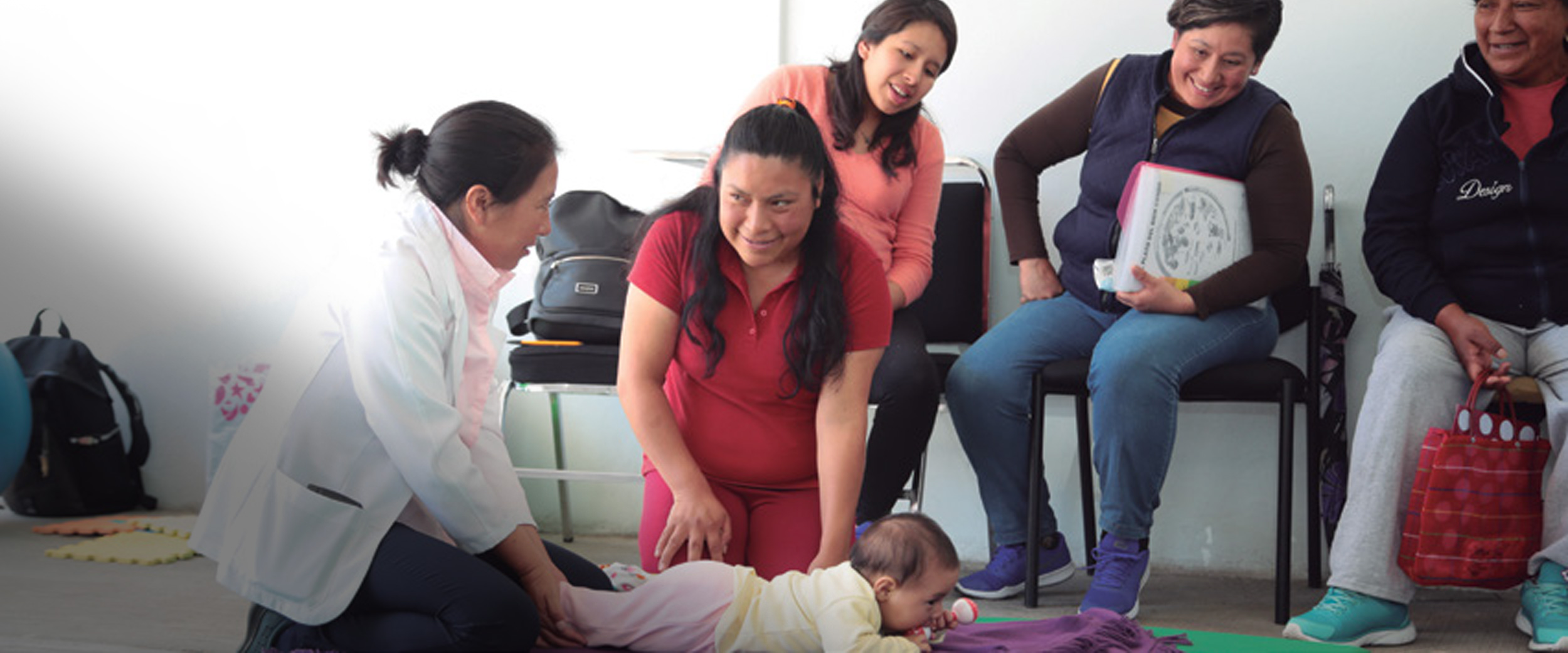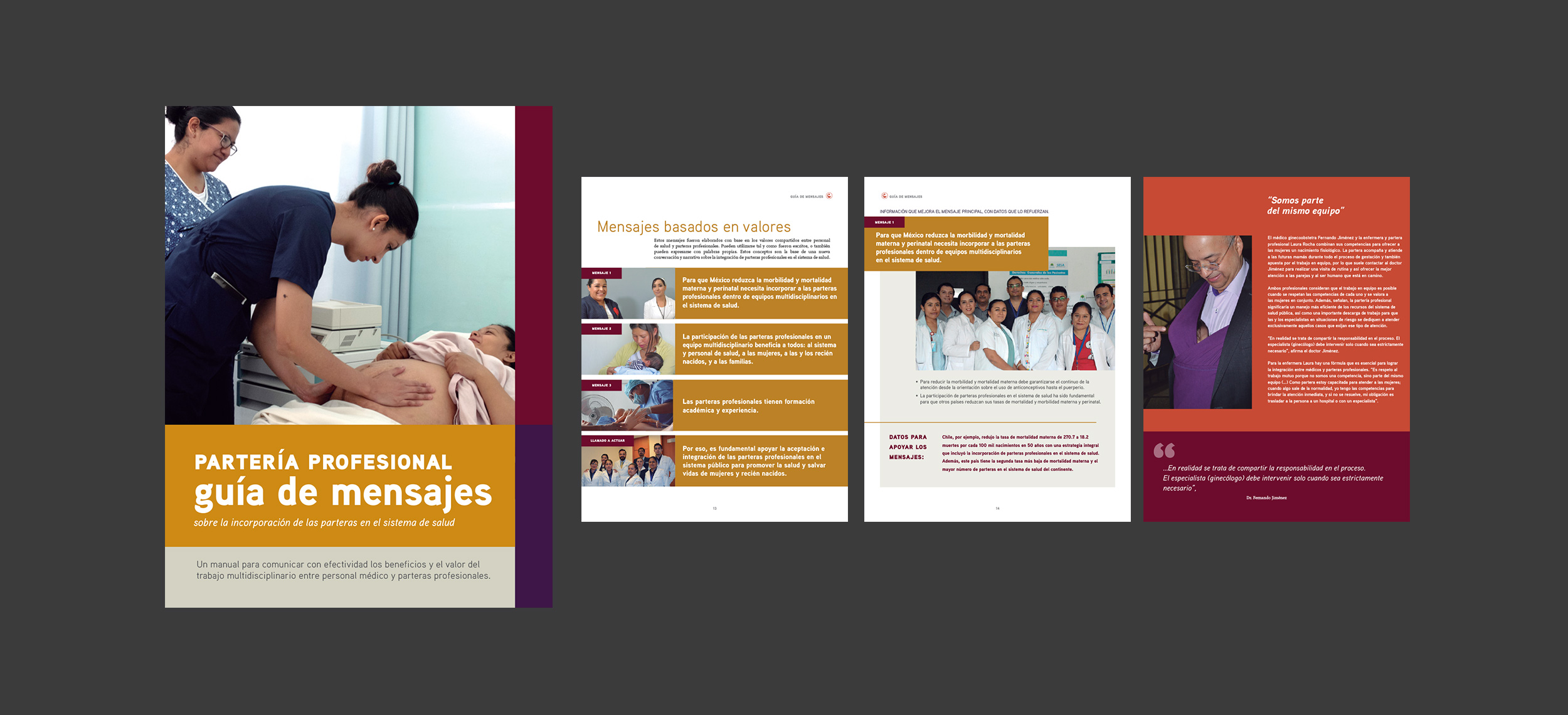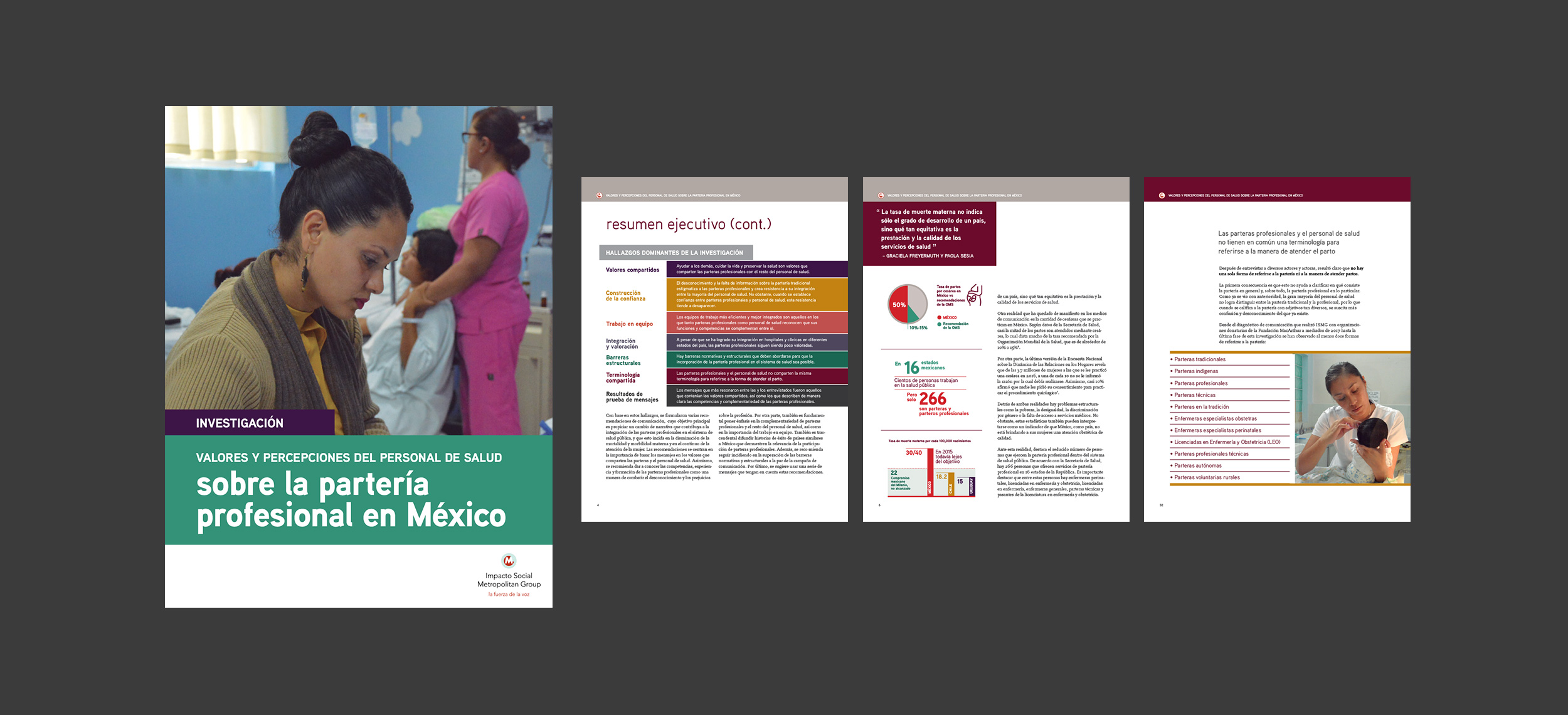
Promoting midwifery in Mexico
Services
Focus Areas
Decades-long misperceptions gave rise to a story that giving birth with a doctor in a hospital meant a safer birth. As a result, midwifery lost its value as a feasible practice in modern medicine, and many women and babies lost access to quality care.
What was the challenge?
Mexico faced overcrowded medical facilities, increased hospital costs, reduced quality of reproductive and prenatal care in Indigenous communities, and high rates of infant and maternal deaths. The solution was to bring midwives into the public health system. But health professionals distrusted the education and preparation of professional midwives. Addressing this became the first step to narrative change.
What did we do?
Clearly a new narrative was needed to support an emerging movement to bring back midwifery to a health system pushing to institutionalize childbirth. Front and center was the need to address misperceptions about midwifery among health personnel. This was accomplished by increasing awareness and creating clarity about the training and certification of professional midwives, while avoiding stigmatizing traditional midwives in the process. Also essential was communicating the mutual benefits for women and families as well as the health system.
MG facilitated the creation of the new narrative by researching the shared values of health professionals and midwives. Through collaboration with U.N. agencies, the Federal Health Ministry, 11 state public health systems and midwifery organizations, we engaged early adopters and champions to demonstrate an integrated approach to providing reproductive care using videos and storytelling on social media, and in communication for state-based policy work.


What happened?
Already 14 of 32 state health systems in Mexico have started to bring in midwives to work alongside health providers. Acceptance of midwives as essential to maternal health care is growing. Early adopter clinics and hospitals have reported that the integration of professional midwives has started to:
- Create more balanced patient loads for providers.
- Increase the provision of more humane reproductive care.
- Improve prenatal care and deliveries with mothers whose pregnancies are low risk, with the support of doctors when needed.
- Provide doctors with more time to focus on patients with complications and other needs.


